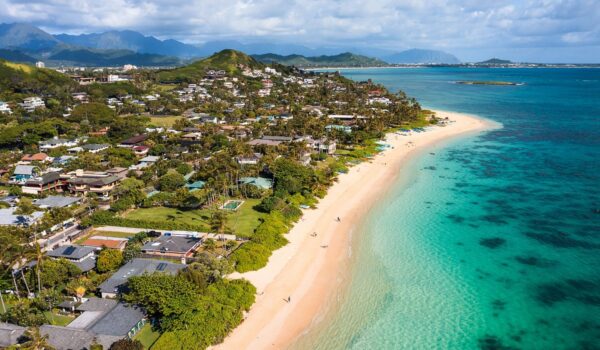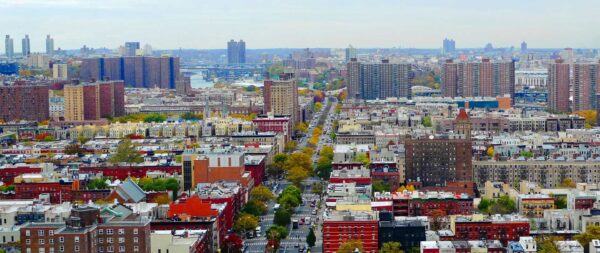If you are planning to immigrate to Romania, you will find a country that is a blend of ancient history, natural beauty, and modern structures. Romania offers a unique blend of ancient charm and modern living, from the medieval towns of Transylvania to the amazing capital city of Bucharest. Many coming here also bring their stories with them, driven by the prospect of work, the urge to live an untrammeled lifestyle, or the call of family already settled here. The immigration process may initially seem overwhelming, but it can be a smooth transition with the right guidance and preparation. Romania is an EU member, which opens up some benefits and imposes some requirements, depending on your nationality. Building a life here is much easier if you understand the steps involved. Now, let's get into it.
Romania Entry Requirements
Citizens in the EU, EEA countries, and Switzerland have the simplest path. You can enter Romania without a visa and don't need a special permit to live and work here. However, you must register to stay more than ninety days. You'll need:
- A valid passport or national ID
- Proof of income or employment
- Health insurance (public or private)
- Proof of accommodation (rental contract or ownership)
After submitting these to the General Inspectorate for Immigration, you will be issued a valid registration certificate for up to five years. The process is more complicated for citizens of non-EU countries. First, you must obtain a D-type long-stay visa, which is valid for work, business, study, or family reunification. Once you have your visa and are in the country, you need to apply for a residence permit.
Visa Required for Immigration to Romania
Foreign nationals who want to immigrate to Romania must have a visa before relocating to Romania.
1. Romania Work Visa (D/AM)
This is given to people who have received a job offer from a Romanian company. It's also among Romania long-term visas. The employer manages the application process and sponsors the visa. Upon arrival, this visa may be changed to a residency permit.
According to European Union legislation, any EU/EEA citizen has the same employment rights as Romanian citizens. Hence, they do not require a work visa. Foreign citizens who are third-country nationals can only work in Romania if they first secure a work permit, followed by a long-stay visa and a temporary residence permit. Here are the requirements for foreign nationals to obtain a work visa in Romania:
- Get a medical certificate stating that they are fit to perform the activity.
- Have no criminal past that could prevent them from conducting their business on the national territory
- Fulfill the legal criteria of the employer regarding experience and training
- Be within the yearly quota that a government decision has authorized
- Romanians or citizens of EU member states or the EEA are not eligible to fill the position they choose.
2. Romania Student Visa (D/SD)
You can immigrate to Romania for study purposes using a student visa. It is for students intending to study at a reputable Romanian educational institution. This visa is provided upon admission to the institution. After that, you must get a long-stay study visa from the Romanian consulate or diplomatic mission in your home country.
Participants in student exchange programs are also eligible to apply for a long-term study visa, as are prospective undergraduate, graduate, or doctoral candidates. Your chosen university may be public or private, but it must be accredited in compliance with all applicable laws. A student visa may also be issued to foreign people who are admitted for studies under international agreements recognized by Romania.
3. Romania Family Visa (D/VF)
This is for the relatives of foreign nationals living in Romania. With this visa, spouses, kids, and occasionally parents can visit their relatives who reside in Romania. Sponsoring family members require the primary resident to meet certain income and housing requirements.
4. Business Visa (D/AC)
One can immigrate to Romania to conduct business activities using a business visa. This visa is intended for professionals who must travel to Romania for brief work or business meetings. It typically lasts 90 days.
Documents Required for Romania Visa Application
- A valid passport
- Passport-sized photos
- Visa application form
- Proof of outbound travel
- Proof of accommodation
- Health insurance
- Criminal record check
- Proof of employment
- Financial records
- Birth certificate
- Marriage certificate
- Proof of a clean criminal record
How to Apply for a Romania Visa
To apply for a Romanian visa, follow these steps:
1. Gather the Necessary Documents
Before you start your Romania visa online application, ensure you have all the necessary paperwork. This is important because you must provide these documents during the application process. Each file should be no more than 2 megabytes (2 MB) and in one of the following formats: jpg, tif, jpeg, png, bmp, rtf, txt, or pdf.
2. Complete the Application Form
To fill out the application, check the Ministry of Foreign Affairs' E-Visa website. It is essential to give correct and accurate information while applying. You must supply the necessary documentation when filling out the application form. Please be aware that you are not required to submit the documents online. Then, you can check the box stating that you will take the documents to the Romanian consular or diplomatic location.
3. Submit Your Application
Check and revise your completed visa application to ensure all the information is correct and detailed. After doing all the necessary inspections, download the application and send it to the Romanian consulate or embassy in your country of origin.
4. Await Validation
After you submit your application, consular employees will examine it for validation. They may ask for more details or verify its authenticity. Within a few days, you will receive an email with information about the validation status.
5. Schedule an Appointment With the Romanian Embassy/Consulate
You need to make an appointment with the closest Romanian embassy or consulate when you are notified that your application has been approved. You can schedule the appointment via phone or email, depending on your location.
6. Attend the Appointment
You must sign the application form with a consular employee when you have an appointment. Remember to bring more documents that may be needed following the validation of your visa application. The Romanian embassy or consulate will email you to inform you of the outcome of your application submission. Depending on several factors, the application procedure may take longer than the usual 15 days.
7. Pay the Visa Fee
One must pay the visa fee at the time of the appointment. A Romanian visa costs €90 ($100) and €120 for a long-stay visa. The payment options vary depending on where you live.
8. Get Your Visa
You will get an email from the Romanian embassy/consulate informing you of the outcome of your application. Once it has been accepted, you can obtain your visa.
Where to Apply
You can only apply for any Romanian visa at the Romanian consulate or diplomatic post. If your country does not have a Romanian consulate or diplomatic mission, you must go to a neighboring country to do it.
However, you can only apply for a visa at the Romanian consulate or mission located in a nation where you are a citizen or a lawful resident. If your country does not have a Romanian embassy, apply to the Romanian diplomatic mission accredited in your home country. Except in an emergency, you cannot apply for a Romania visa at a Romania consulate or mission in a country where you have a tourist visa.
Romania Visa Application Processing Time
Your application will be processed in 15 working days at a minimum, but this could take 30 days or longer. Factors such as the volume of applications and the complexity of your case affect processing delays. Wait until you hear back before making any non-essential travel arrangements.
Benefits of Moving to Romania
Here are some of the benefits you’ll enjoy if you plan to immigrate to Romania:
1. Music and Art Culture
Romania has become one of Europe's most popular locations for music festivals. There is a diverse range of music events to choose from, including jazz, electronic, indie, rock, and pop, as well as breathtaking scenery. You can choose from stunning castle grounds, a storybook forest, lovely sandy beaches, or beautiful landscapes and lakes!
2. Romanian Citizens are Welcoming
Moving to another country might be intimidating, but having friends can help make the process go more smoothly. Making new acquaintances in Romania is simple, and you should not be startled if they are the first to communicate with you.
Although they are well-known for their hospitality and ability to welcome and make visitors feel at ease, they are also inquisitive individuals who enjoy asking many questions. Their curiosity stems from a lack of hidden interests. They simply enjoy learning about various countries and how people live in other areas of the world, so it is nothing more than a pleasant chat for them.
3. Low Cost of Education
No matter who you are or where you're from, studying in Romania may be one of your best decisions ever. When you immigrate to Romania, you'll enjoy the sound education system. The low cost of living here is quite a juicy attraction. The European Union / European Economic Area (EEA) immediately recognizes Romanian degrees from approved universities throughout Europe and beyond.
Due to its strong academic standards that align with the Bologna System, Romania has drawn many students from all over the world to finish their studies. Even for individuals wishing to complete a second university degree, Romania can be a fantastic option because living and educational expenses are the lowest in the European Union.
Conclusion
Choosing to immigrate to Romania can lead to a rewarding experience. With its welcoming communities, affordable living, and cultural depth, Romania offers a fresh start for individuals and families alike. Taking the time to understand the process will help you settle in with confidence and peace of mind.
















